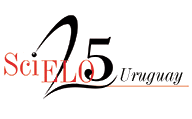Is there a Philosophy of Technics? On science, technics, utopy and dystopia
DOI:
https://doi.org/10.25185/10.11Keywords:
Science, Technology, Utopy, DistopyAbstract
Humans need to create their own environment to survive and to live a fulfilling existence. In this task technique first and technology hand in hand with science later, have allowed him to put nature at their service, in a career of progress that promises utopia. However, nothing in the human realm is so simple or so linear, and the same technology that has allowed undeniable achievements also carries its costs and losses, and can pose a threat. Environmental problems and the possibility of transforming our own nature into another (as proposed by transhumanist narratives) are two obvious examples. There is therefore an urgent need for a philosophy of technology, as a critically reflective movement capable of posing radical questions and making holistic considerations. In the world we live it is necessary therefore to combine the reasonable specialization of scientists with their incompetence to set ultimate goals to their own activity. The consequences of scientific developments are too important to be in the hands of a new «enlightened despotism», because they affect the entire society. It is also essential to re-propose a truly human notion of the common good, in the face of the powerful reductionist tendency that confuses it with the mere well-being available through economic progress. Finally, it is convenient to bring to light some true losses induced by an omnipresent technology, which could be described in general terms as the eclipse of the real by the virtual, and the correlated growing inability for the «self-absorption» (ensimismamiento) of persons completely turned to the immediacy and exteriority of technological connectivity.
Downloads
References
Bacon, Roger. The New Atlantis. London: John Crocke, 1626. https://www.thomasmorestudies.org/docs/Bacon.pdf
Bauman, Zygmunt. City of fears, city of hopes. London: Goldsmith’s College, 2003.
Bauman, Zygmunt. Work, Consumerism and the New Poor. Philadelphia: Open University Press, 1998.
Bourke, Joanna. Fear: A Cultural History. London: Virago, 2005.
Eibl-Eibesfedlt, Ireneus. Der vorprogrammierte Mensch. Wien, München, Zürich : Molden, 1973.
Galilei, Galileo. Discorsi e dimostrazioni matematiche, intorno à due nuove scienze. Leida: Elzeviri, 1638.
Han, Buyng Chul. Die Austreibung des Anderen. Frankfurt: S. Fischer Vg, 2016.
Han, Buyng Chul. Müdigkeitsgesellschaft . Berlin: Matthes & Seitz, 2010.
Heidegger, Martin. “Die Frage nach der Technik”. En Gesamtausgabe, 5-35, Frankfurt: Vittorio Klostermann, 1953.
Mumford, Lewis. The Story of Utopias. New York: Boni and Liveright, 1922.
Ortega y Gasset, José. Ensimismamiento y alteración. Meditación de la técnica. Madrid/Argentina: Espasa-Calpe, 1939.
Sanmartín Esplugues, José. Bancarrota moral. Barcelona: Sello, 2015.
Sanmartín Esplugues, José. “Crítica de la razón cruel. Breve análisis de los riesgos de una tecnología sin humanismo”. SCIO 15 (2017): 29-61.
Sanmartín Esplugues, José. “La técnica y el proceso de humanización”. Investigación y Ciencia, nº. 490 (2017): 50-51.
Sanmartín Esplugues, José. Tecnología y futuro humano. Barcelona: Anthropos, 1990.
Scheler, Max. Die Stellung des Menschen im Kosmos. Darmstadt: Reichl Vg, 1928.
Spengler, Oswald. Der Mensch und die Technik. Beitrag zu einer Philosophie des Lebens. München: C.H. Beck, 1931.
Published
How to Cite
Issue
Section
License
Copyright (c) 2021 José Sanmartín Esplugues

This work is licensed under a Creative Commons Attribution 4.0 International License.



























 This work is under a
This work is under a 